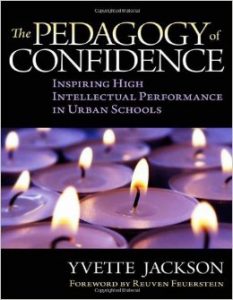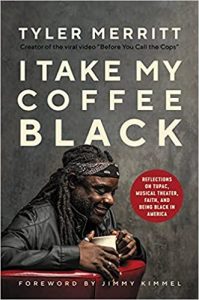Home About Collaborations Resources Institutes The NUA Vlog
National Urban Alliance (NUA) was founded at Columbia University focusing on equity consciousness through professional development of whole schools and whole districts. NUA’s hands on approach of the Pedagogy of Confidence framework by Yvette Jackson with High Operational Practices models its’ commitment to equity consciousness through pedagogy that amplifies student voice for self direction and self actualization. It is as relevant today as it was when NUA began in 1989. NUA’s scholars and mentors currently collaborate with districts in Professional Learning Cycles with a hybrid approach maximizing NUA’s known in person capacity supported with a virtual wrap around.
Equity Consciousness
The Pedagogy of Confidence
“Change the input and the brain changes accordingly.”
—Reuven Feuerstein
The Pedagogy of Confidence is an approach to learning and teaching that is based on the fearless expectation that all students are capable of high intellectual performances when provided High Operational Practices™ that motivate self-directed learning and self-actualization. The Pedagogy of Confidence model, developed by Dr. Yvette Jackson, Senior Scholar and previously CEO of NUA, is the model that is a focus of NUA’s collaborations. These High Operational Practices are:
- Identifying and activating student strengths

- Building relationships
- Eliciting high intellectual performances
- Providing enrichment
- Integrating prerequisites for academic learning
- Situating learning in the lives of students
- Amplifying student voice
These seven High Operational Practices are the fulcrum around which the “gifted” education of the Pedagogy of Confidence revolves, gearing the objectives for each practice to facilitate students exploring and acting on their potential to produce the high intellectual performances that can motivate self-directed learning, self-actualization, and self-transcendence. The inherent strategies and actions used to identify and build on strengths, provide enrichment and create schema that connects to a student’s cultural frame of reference inherent in “gifted education” serve to enhance comprehension that results in strengthened competence, confidence, resilience and high intellectual performances (Jackson, 2017).
Pedagogy of Confidence Action Guide online at www.pedagogyofconfidence.net
“We claim what we feel we deserve.”
—David Whyte
“In our work and in our living, we must recognize that difference is a reason for celebration and growth, rather than a reason for destruction.”
—Audre Lorde
An Author and Artist’s Perspective “A sad, happy, moving, troubling, inspirational, humorous and brutal account of the people and experiences that formed this exceptionally well-formed man… (Tyler Merritt) … subtly and kindly reminds us of how much we have in common and that assumptions are made by fools.”
“A sad, happy, moving, troubling, inspirational, humorous and brutal account of the people and experiences that formed this exceptionally well-formed man… (Tyler Merritt) … subtly and kindly reminds us of how much we have in common and that assumptions are made by fools.”
―Jimmy Kimmel
“…seeing the energy of the teachers, seeing the heartbeat in true desire and passion to help students… it was inspiring… equipping teachers to serve teachers effectively gives me hope for the future…”
Spoken word artist, author, activist Tyler Merritt speaks on the purpose and passion with NUA collaborations.
Professional Development
Professional Learning Cycles
Hybrid: Virtual and In-Person
“Give light and people will find the way”
—Ella Baker
National Urban Alliance (NUA) collaborates with schools and school districts with Professional Learning Cycles including classroom demonstrations with students, educator professional development, district coaches, leadership trainings, school board trainings, developing equity committees with community participation and amplifying student voice.
To Begin With
We listen to you in developing a Professional Learning Cycles model that supports educators professional development. Listen to the examples and reflections on video. They will share the ‘why’ and ‘how’ of National Urban Alliance in action implementing the Pedagogy of Confidence with High Operational Practices.
“When ‘I’ is replaced with ‘We’, even illness becomes wellness”
—Malcolm X
“…the level of student engagement… for distance learning and when we move back into the traditional classroom settings…
using the Pedagogical Flow Map with priming and processing… take it up a notch…
…the district has done an amazing job…“
Pedagogy of Confidence Protocol
The Pedagogy of Confidence® Protocol provides district and school partners with the tool to monitor progress from the beginning level of PoC implementation (Innovation), to developing PoC practices (Building) toward deeper and sustainable implementation (Sustainability). The PoC Protocol explicates the 7 High Operational Practices with indicators leading toward sustainable practices. The full document delineates the Essential Criteria and each of the three levels of PoC implementation for each of the 7 High Operational Practices.
“I think teaching kindergarten it reminds me how important student voice is…”
Let’s Get Started
Reach out to our Founder and President Eric Cooper and Executive Director Stefanie Rome for a dialogue on collaborating with The National Urban Alliance in bringing the Pedagogy of Confidence model for real change, real results and realizing the potential of all students and educators.
Amplifying Student Voice
Self Direction — Self Actualization
Amplifying Student Voice
Self Direction — Self Actualization
Purpose
Amplifying Student Voice focuses students on exploring, understanding and collaboratively sharing the purpose and methods of equity consciousness with peers as learners across all content areas. With a focus on their cultural frame of reference. Amplifying Student Voice will use the critical thinking tools (Pedagogy of Confidence High Operational Practices) being implemented with the teachers to support and grow student engagement with a belief and belonging in their learning.
“Students must have initiative; they should not be mere imitators. They must learn to think and act for themselves, and be free.”
—Cesar Chavez
Why
Amplifying Student Voice focuses on using High Operational Practices for High Intellectual Performance with NUA’s 4 C’s. This is grounded with current things that matter to the students cultural frames of reference, their learning community, their greater living community and globally.
“No significant learning occurs without a significant relationship.”
—James Comer
Purpose
The students will use critical thinking methods (High Operational Practices – HOPs) to determine how the purpose and methods of equity consciousness reflectively supports the learning. They will use critical thinking methods to develop how they will use video to document the how do we learn and who are we in their classrooms and schools.
When Students Become Teachers
The National Urban Alliance’s radical but refreshing approach to involving students in teacher professional development is featured in this CNN news feature, which was hosted by CNN education contributor Steve Perry and broadcast on Anderson Cooper 360.
“There’s no excuse for the young people not knowing who the heroes or heroines are or were.”
—Nina Simone
